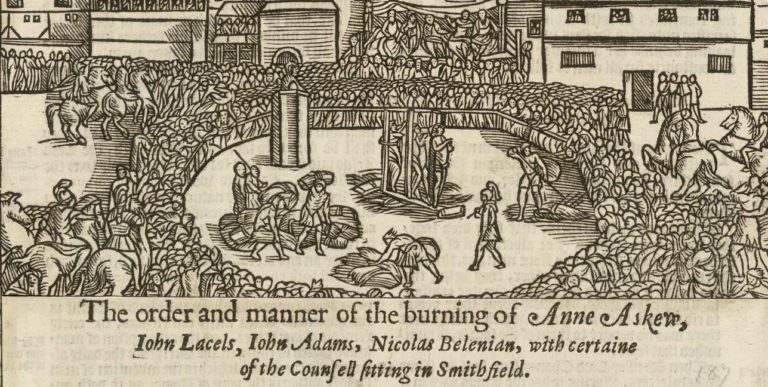Peter Adam continues his epistolary series on academic theology (see post 1 here). In this post he speaks frankly about some of the snares that await the academic theologian.
Dear Stu,
In my last letter, I tried to set out some of the good reasons to get involved in postgraduate theology. In this one, I want to issue a few warnings about things to look out for. The academic life has particular dangers that can easily entangle the unwary.
1. Idolatry and Competition
All idolatry is destructive. Idolising academic research will stunt your personal and spiritual growth. It will limit your horizons. If you succeed in your study it will make you arrogant, if not you will feel inferior. Our idols choke us.
Idolatry will also make you competitive, and competition in ministry is very damaging. It makes you envy people with more gifts, and despise people with fewer gifts. And if you envy people with more gifts, then you are likely to despise your own gifts, your own ministry, and the people to whom you minister. Competition stops us encouraging and affirming others, which is a basic element of loving our neighbour.

2. The Singularity Trap
Before we study, the heroes we admire tend to be those who are good at ministry. Study gives us new heroes: writers and academics who inspire us.[1] This can result in a significant change of values, identity, and purpose. But we need to remember that, although writers and academics are important and useful, their competences can sometimes be very limited. Writers and academics have the luxury of a very narrow and specialised life. But most people in ordinary ministry (including those who teach in colleges) need to be generalists, competent in many areas and in many types of ministry. They need to be pastors, teachers and trainers.
Pursuing such focus can become a threat to your most important relationships if you let it. Research takes a great deal of energy—leaving less for your spouse, children, daily devotions, church membership and ministry. If these areas dry up completely, you may gain your PhD but lose much that makes you useful as a believer and in ministry.
3. Other Dangers of Specialisation
If you are too constrained by your expertise you will be of limited use. Consider these examples:
- The lecturer who won’t give a straight answer to pastoral questions about divorce because it’s outside his or her sphere of confidence.
- The pastoral studies lecturer who declines to use the categories of right and wrong.
- The teacher in Christian Thought who offers historical alternatives but refuses to make a definitive statement about an issue.
- The writer/researcher who is forever talking about contemporary controversies but isn’t level-headed enough to see that students need to be grounded in the basics.
Academics like this can have a very negative impact on students. Their actions imply that no one can talk about anything unless they have a doctorate. I met one minister who was not confident to teach the books of the Bible unless he had studied them in detail at college, and another who would only preach on books he had not studied, because he was unaware of the complexity of those books!
To avoid these kinds of problems you need to maintain broader academic interests and try to develop your pastoral skills. If your area is the prophet Obadiah must also maintain a wide interest in the whole of the Old Testament and indeed the whole Bible. If your speciality is academic research, then you should seek to complement this strength with additional training and experience in ministry so that you can form and train people for ministry outside the college system. I often think that the best people to have teaching in a college are those who would rather be doing ordinary gospel ministry!
There’s more to the job of teaching than giving lectures. Ministry continues over coffee, in small groups, in casual conversations, in Chapel, and in shared ministry beyond the college. Jesus did most of his teaching ministry by answering questions. The students are not just people who need to learn, but people who need to be trained, mentored, coached, and ministered to.
4. The Dangers of Research in a Western Liberal Intellectual Environment
You won’t get very far in finding a research topic, evaluating what others have written, or thinking of possible objections to the claims of your thesis without meeting the academic values and world-views of our Western liberal intellectual environment. It is bad to submit to them without evaluating them. It is not possible to get a PhD without relating to them and taking them into account. Here are some that I have met in my research:
- denial of the supernatural;
- denial of God as cause;
- denial of the authority and coherence of the Bible;
- the reduction in the significance of the author of a text;
- the belief that any claim to authority is morally suspect;
- the denial of the possible existence of absolute truth;
- the replacement of theology by sociology (i.e. this is what the early church did or believed, rather than this is what Peter instructed his churches to do);
- ignoring Jesus’ authority, teaching, and effect and impact on Christianity!
You must not compromise in these areas, but neither should you ignore them. To produce a successful doctorate you will need to recognise the challenges and work out which ones you need to address. You will need to stake out the territory you want to defend in your thesis. Some find Church History theses are easier to write—because it is possible to describe and not evaluate—but this is not a helpful habit in ministry in general.
Remember that truth matters for Christians; that we are set free by Christ’s truth; that the Holy Spirit is the Spirit of truth; and that the church is the pillar and bulwark of the faith. Remember too that Satan is the father of lies, and that false ideas, false theology, false practice, and false spirituality damage God’s people, and dishonour God, and damage his people. Don’t get a PhD at the cost of God’s truth. We know the mind of God from the mouth of God. And God’s word is true and sanctifies his people (John 17:17).
5. Selfishness and Pride
The academic theologian is often seen as having a special gift. And there is something important about a ministry that teaches other ministers. But that makes it all the more important that those who have these gifts remember what the Bible tells us about gifts in general:
- Gifts are just that—gifts! (1Corinthians 4:7). You did not earn them; you do not have them by right; you do not deserve them. So don’t boast of them, in word or attitude, and don’t trust in them to give you worth before God, or superior worth to others. Doing a doctorate is a long-term investment for the good of others.
- Knowledge is a precious gift, but it can also be a dangerous gift. Our natural tendency is to let our knowledge puff us up with self-importance (1Corinthians 8:1). You must resist this by recalling that knowledge without love is worthless (1Corinthians 13:2). You must remember that your gift was given to you to serve others (1Corinthians 12:7)—not to boost your importance.
- Your gifts of knowledge and clear-thinking don’t make you better than those without them (1Corinthians 12:15-25). In fact, they don’t even guarantee that you are right. For example, a student may have a better understanding of the truth of a topic, even if they are not able to think of the arguments to defend their ideas! This means that you will need to cultivate love and patience in relating to people: intellectual rigour is not enough. Winning arguments is not enough.
6. The Limitations of Academia
Generally speaking, there is a big difference between the role of teaching in a Bible or theological college and lecturing at a secular university! People who want to lecture at universities are not very suitable for working in colleges, because their focus is set on academic progress, and they are not responsible for the personal growth in godliness and training for ministry of the students. Of course there are some universities set up to provide gospel vocational training, but they are the exception, not the rule. And they have to work hard to keep the required academic standards, and to meet the requirements of openness to secular evaluation that are in place in their society.
Educational contexts naturally focus on academic results. But some students who are not academic will be wonderful in ministry.
Educational contexts naturally focus on academic results. This focus is not always helpful in colleges training people for ministry! Some students who are not academic will be wonderful in ministry, and some students who are brilliant academically are much less successful in ministry, because there are more skills needed in ministry than those of academic study. No one has had to leave the ministry because they have forgotten the date of the Exodus! But ministers who lack people skills often have to leave the ministry. As I once read in a book on management: “people are appointed for their gifts, and sacked for their character.”
While we should rejoice with those students who do well in their assessments, we should also rejoice with those who don’t do so well but are achieving the best they can do. I remember talking with one part-time student, who had come to college to accompany his wife, who really wanted to study. This student had failed both his subjects. I asked him, “Did you learn anything?”
“Yes, heaps,” he said.
How wonderful. Praise God for that!
Regards, Peter
Photo: Jess Ruby, Lafayette College (inset) flickr
[1] Thanks Graham Cole for this observation.















